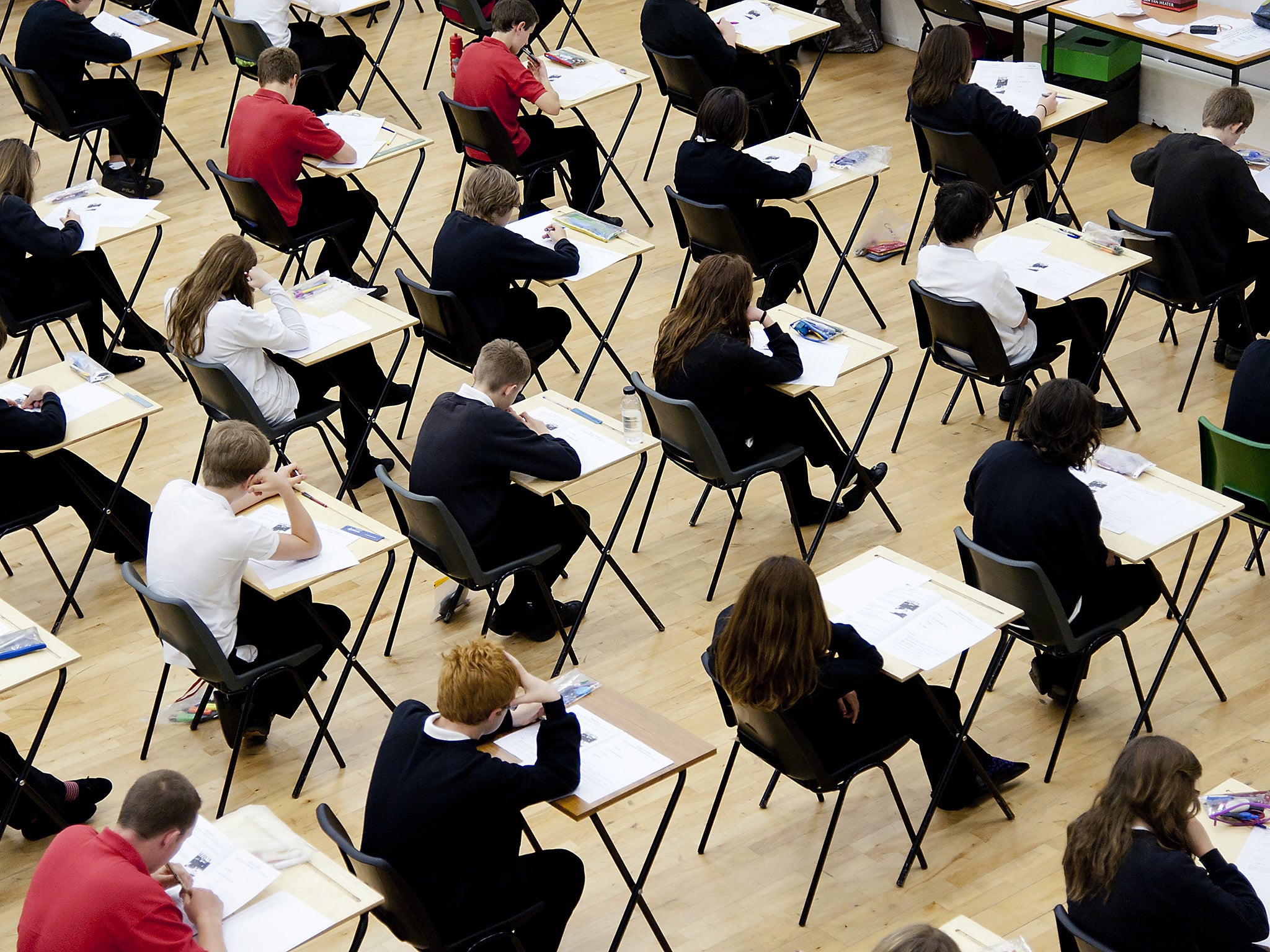Selective schooling has negative impact on UK children, say world education experts
Research from 34 countries also suggests British children are more likely to be bullied, suffer with anxiety and maintain lower levels of satisfaction than many of their global peers

Selective school systems such as grammar streams lower children’s expectations and impact negatively on the wider education system, world experts have said.
As the Government pushes forward plans to create new free schools and expand the grammar system in England, a major global report by the Organisation for Economic Cooperation and Development (OECD) suggests students attending selective schools are more likely to be subject to high levels of anxiety and poor self-esteem.
The study – based on the OECD’s Programme for International Student Assessment (Pisa) tests, which are taken by 15-year-olds across the developed world – also shows the UK to be lagging behind in terms of young people’s social and emotional wellbeing.
“In education systems that separate students into different types of schools, students’ expectations are lower than in systems that have a comprehensive approach to schooling at the primary and lower secondary level,” the report concludes.
“Social segregation that clusters poor students in poor schools might tamp down students’ expectations for, and beliefs in, themselves.”
Government plans to open around 140 new schools, including some grammars, have been met with fierce criticism by industry leaders who claim the move is a “backwards step” which “does little to improve social mobility”.
The new research – which compares student experiences in 34 different countries – found UK children were more likely to be bullied, suffer with anxiety and maintain lower levels of satisfaction than many of their global peers.
The study’s authors noted: “Long study hours represent another possible factor of schoolwork-related anxiety. Students in selective, high-pressure schools might feel obliged to invest extra hours of work to comply with external expectations and with their own motivation for academic achievement.”
On a scale of one to 10, British pupils had an average satisfaction score of 6.98, compared with the OECD average of 7.31.
Of further concern, was that young British people reported having lower than average life satisfaction.
Just 28 per cent of UK pupils said they were satisfied with their lives, placing them behind their French, German, Spanish, Latvian and US peers.
Almost a quarter of pupils in the UK said they were bullied at least “a few times a month”, rising to 27 per cent for the most disadvantaged pupils, the report found – 5 per cent higher than the global average.
Disadvantaged pupils also reported greater instances of being left out of things on purpose, having other students spreading negative rumours about them and being abused physically by other students.
More than 14 per cent of UK children said they were bullied even more frequently – a significantly higher figure than the OECD average of 8.9 per cent, ranking the UK the fourth highest for bullying in the world.
Around 540,000 students took part in the latest Pisa tests in 72 participating countries and economies.
Where bullying was rife, performance was affected, as schools in which more than one-tenth of pupils fell victim to it scored an average of 38 points lower on science than schools with the lowest episodes, the study found.
As many as 72 per cent of British students reported worrying about tests even if they were well-prepared, compared with the 55 per cent global average.
Just more than half (52 per cent) also said they became very tense during their studies, above the 37 per cent international mean.
Natalie Perera, executive director and head of research at the Education Policy Institute, said the Pisa report presented “stark findings” for the British Government on the wellbeing of pupils, “particularly those from disadvantaged backgrounds”.
“Disadvantaged pupils are more likely to be bullied than their peers, and are more likely to skip breakfast before school – with the gap between the proportion of advantaged and disadvantaged pupils in the UK doing so the second biggest out of all 34 countries," she said.
"When it comes to university, less than a quarter of disadvantaged pupils in the UK expect to complete a degree, compared to over two-thirds of the most advantaged pupils.
“The Government’s stated commitment to tackling social mobility is welcome – yet as this report demonstrates, the UK lags behind internationally when it comes its pupils’ everyday experiences at school – with disadvantaged UK pupils lagging behind even further.”
A Department for Education spokeswoman said: “These findings show young people have the motivation and desire to go as far as their talents can take them and that their parents are supporting them throughout their time at school.”
The report follows two volumes of Pisa results for 2015, released last December, which found the UK's teenagers continue to fall behind their peers in countries such as Singapore and Japan when it comes to science, maths and reading.
Join our commenting forum
Join thought-provoking conversations, follow other Independent readers and see their replies
Comments